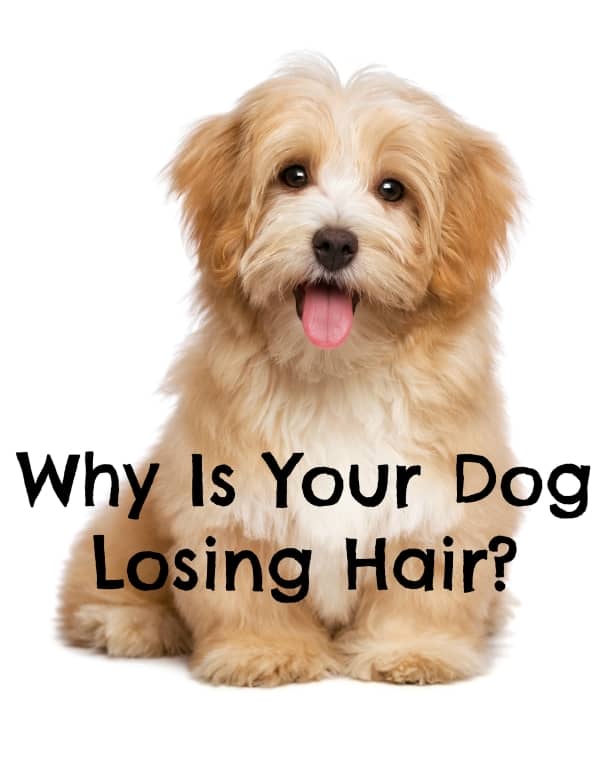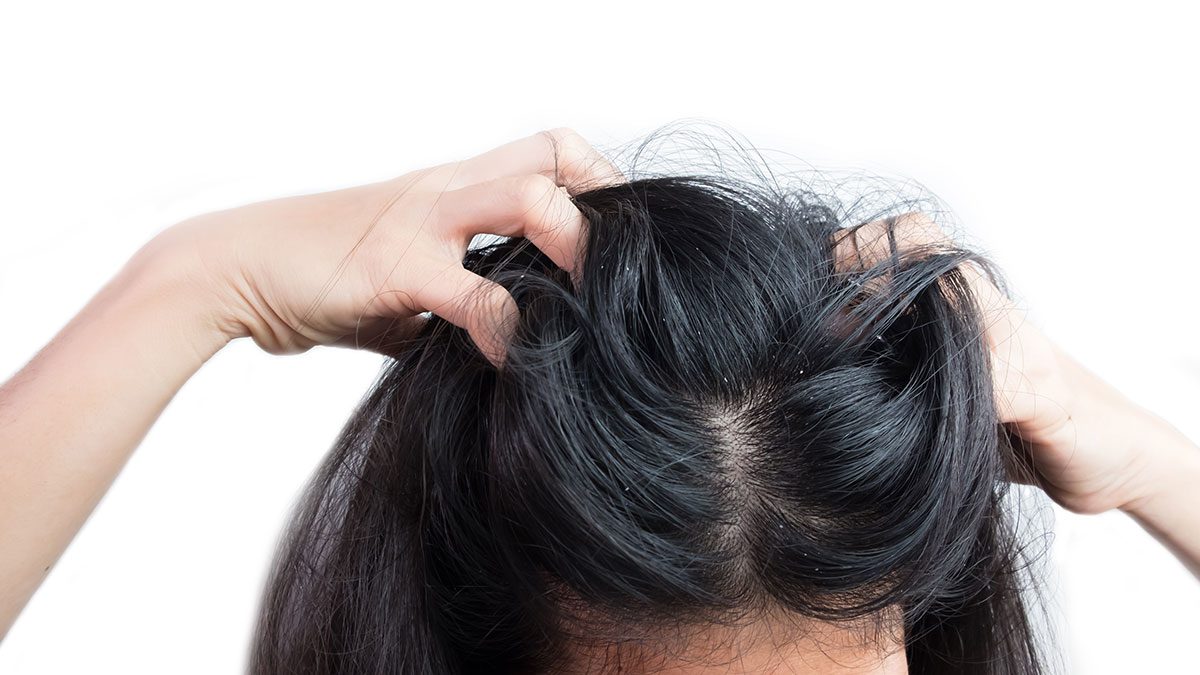Chemotherapy drugs target fast growing cells (like hair); However, they are more prone to infections, bleeding, vomiting, diarrhoea and loss of appetite.
Do Dogs Lose Their Fur With Chemotherapy, Most dogs and cats do not have any hair loss secondary to chemotherapy. Mange does not require treatment.

One of the most common causes of hormonal hair loss is hypothyroidism or a low thyroid. Top best answers to the question «do dogs lose hair during chemo» answered by antwan spinka on sat, mar 6, 2021 5:25 am. It can also be a result of temperature as well as hormonal changes. Some dogs will also lose some of their fur as a result of chemotherapy treatment, as the cells responsible for growing hair are also affected by treatment.
However, if she is losing a lot of hair or has other symptoms like itching, licking, biting, redness, lesions, nodules, or changes in skin.
Most dogs and cats do not have any hair loss secondary to chemotherapy. While it’s rare for dogs undergoing chemotherapy to lose their hair, when they do, some owners will stop treatment for their pets because they assume the chemo has become toxic. Certain breeds are more prone to losing some hair during chemotherapy, including poodles, old english sheepdogs and bichon frise. Fur is not a fast growing cell. Some cytotoxic drugs cause liver, kidney or heart problems. This is called ‘blowing coat’.
 Source: wagwalking.com
Source: wagwalking.com
Your old furry friend may lose lots of its fur in just a short period of time. Reproductive function is usually not relevant. Fur is not a fast growing cell. Animals do not lose all their fur with chemotherapy drugs. Chemotherapy drugs target fast growing cells (like hair);
 Source: thehappypuppysite.com
Source: thehappypuppysite.com
Chemotherapy drugs target fast growing cells (like hair); While it�s rare for dogs undergoing chemotherapy to lose their hair, when they do, some owners will stop treatment for their pets because they assume the chemo has become toxic. As in humans with cancer, chemotherapy is used as a treatment for cancer in dogs. It prevents them from looking their best,.
 Source: oodlelife.com
Source: oodlelife.com
Pets rarely lose their hair while undergoing chemotherapy, but if they do, they are not bothered by it. However, if she is losing a lot of hair or has other symptoms like itching, licking, biting, redness, lesions, nodules, or changes in skin. Dogs like poodles and maltese dogs have a hair coat that is in a continuous growth phase. According.
 Source: doodledoods.com
Source: doodledoods.com
In fact, 75 to 80 percent of dogs have no side effects, she said. When present, typical side effects include loss of appetite, vomiting and diarrhea. Top best answers to the question «do dogs lose hair during chemo» answered by antwan spinka on sat, mar 6, 2021 5:25 am. Dogs that are particularly anxious, grapple with psychological and behavioral disorders,.
 Source: nishiohmiya-golf.com
Source: nishiohmiya-golf.com
This is called ‘blowing coat’. Nobody likes finding out that their dog is experiencing hair loss. Most pets do not lost their fur while undergoing chemotherapy, because their coat is not continually growing. Stress, organ failure, and poor nutrition are some other causes that can trigger an episode of excessive hair loss in your pet. The weight loss in dogs.
 Source: barkpost.com
Source: barkpost.com
However, clipped fur may regrow slowly, and some breeds that require grooming, such as poodles, schnauzers, and bichon frise, can develop hair loss or skin pigment change to varying degrees. Most pets do not lost their fur while undergoing chemotherapy, because their coat is not continually growing. When the loss of appetite, and its associated weight loss, is secondary to.
 Source: thehappypuppysite.com
Source: thehappypuppysite.com
However, clipped fur may regrow slowly, and some breeds that require grooming, such as poodles, schnauzers, and bichon frise, can develop hair loss or. It can also be a result of temperature as well as hormonal changes. The hair eventually comes back and may be a slightly different texture and/or color. Pets rarely lose their hair, but if they do,.
 Source: care.com
Source: care.com
This process is painless, although it can be irritating, and the hair will almost always grow back after treatment has finished, but it may be different in colour or texture than it was before treatment. Just like you and i, our pups can fall victim to seasonal allergies. After a massive hair loss, your old dog’s fur may not appear.
 Source: petcoach.co
Source: petcoach.co
This is called ‘blowing coat’. Nobody likes finding out that their dog is experiencing hair loss. Top best answers to the question «do dogs lose hair during chemo» answered by antwan spinka on sat, mar 6, 2021 5:25 am. Dogs like poodles and maltese dogs have a hair coat that is in a continuous growth phase. Animals do not lose.
 Source: dogsflash.com
Source: dogsflash.com
When present, typical side effects include loss of appetite, vomiting and diarrhea. Therefore, hair loss in pets is rare. However, if she is losing a lot of hair or has other symptoms like itching, licking, biting, redness, lesions, nodules, or changes in skin. It is in a continuous growth phase. In fact, 75 to 80 percent of dogs have no.
 Source: glamorousdogs.com
Source: glamorousdogs.com
Pets rarely lose their hair, but if they do, they are not bothered by it as much as people are. The pets most at risk are animals that have hair that continually grows (ie poodles, old english sheepdogs). Though our allergies tend to cause us to sneeze and sniffle, canine allergies often impact the appearance of their skin. The first.
 Source: petsaffinity.com
Source: petsaffinity.com
Www.wvrc.com/./ for all pets, the hair that is lost due to chemotherapy will grow back after the course of chemotherapy has been completed or once treatments are given less frequently. Your old furry friend may lose lots of its fur in just a short period of time. However, if she is losing a lot of hair or has other symptoms.
 Source: dogpack.com
Source: dogpack.com
Some dogs blow their double coats twice a year in massive waves of furry madness. Just like you and i, our pups can fall victim to seasonal allergies. Genetics your dog’s breed plays a role in his or her risk of hair loss. Www.wvrc.com/./ for all pets, the hair that is lost due to chemotherapy will grow back after the.
 Source: bestpoodle.com
Source: bestpoodle.com
Usually, the mites inhabiting the surface of the dog do not change their hair or skin, but when the numbers grow out of control, it becomes damaging to their fur. Certain breeds are more prone to losing some hair during chemotherapy, including poodles, old english sheepdogs and bichon frise. It will regrow once treatment is finished. However, clipped fur may.
 Source: rd.com
Source: rd.com
As in humans with cancer, chemotherapy is used as a treatment for cancer in dogs. Your old furry friend may lose lots of its fur in just a short period of time. Top best answers to the question «will my dog lose their hair from chemotherapy» answered by raoul hamill on tue, jan 26, 2021 11:55 am. Animals generally do.
 Source: labradortraininghq.com
Source: labradortraininghq.com
Animals generally do not lose their fur during chemotherapy, although it might change in texture or color. Stress, organ failure, and poor nutrition are some other causes that can trigger an episode of excessive hair loss in your pet. Even so, most dogs tolerate chemotherapy much better than their humans. When present, typical side effects include loss of appetite, vomiting.
 Source: thriftyfun.com
Source: thriftyfun.com
It is in a continuous growth phase. Dogs do not lose their fur during chemotherapy, since dog fur growth is seasonal and not constant, like human hair growth. Though our allergies tend to cause us to sneeze and sniffle, canine allergies often impact the appearance of their skin. Stress, organ failure, and poor nutrition are some other causes that can.
 Source: thepetsandlove.com
Source: thepetsandlove.com
There are some breeds, however, like old english sheepdogs, poodles, and some terriers that will lose their fur. Chemotherapy drugs target fast growing cells (like hair); Dogs do not lose their fur during chemotherapy, since dog fur growth is seasonal and not constant, like human hair growth. Animals generally do not lose their fur during chemotherapy, although it might change.
 Source: stuff.co.nz
Source: stuff.co.nz
It will regrow once treatment is finished. Unlike people receiving chemotherapy, hair loss in canine and feline patients is usually very minor. Animals do not lose all their fur with chemotherapy drugs. The hair eventually comes back and may be a slightly different texture and/or color. Chemotherapy drugs target fast growing cells (like hair);
 Source: greenlanefarmboardingkennels.co.uk
Source: greenlanefarmboardingkennels.co.uk
Chemotherapy drugs target fast growing cells (like hair); After a massive hair loss, your old dog’s fur may not appear as full as it was before. Www.wvrc.com/./ for all pets, the hair that is lost due to chemotherapy will grow back after the course of chemotherapy has been completed or once treatments are given less frequently. But there will be.
 Source: goldendoodleadvice.com
Source: goldendoodleadvice.com
Ranging from skin irritation to actual fur loss, allergies are a common cause of changes in a dog’s coat health. One side effect of chemotherapy for dogs undergoing cancer treatment is whisker loss. Stress, organ failure, and poor nutrition are some other causes that can trigger an episode of excessive hair loss in your pet. Most dogs and cats do.
 Source: weimaranerplace.com
Source: weimaranerplace.com
However, they are more prone to infections, bleeding, vomiting, diarrhoea and loss of appetite. One side effect of chemotherapy for dogs undergoing cancer treatment is whisker loss. Some dogs blow their double coats twice a year in massive waves of furry madness. This process is painless, although it can be irritating, and the hair will almost always grow back after.
 Source: petsaffinity.com
Source: petsaffinity.com
Top best answers to the question «will my dog lose their hair from chemotherapy» answered by raoul hamill on tue, jan 26, 2021 11:55 am. However, clipped fur may regrow slowly, and some breeds that require grooming, such as poodles, schnauzers, and bichon frise, can develop hair loss or skin pigment change to varying degrees. Usually, the mites inhabiting the.
 Source: goldendoodleadvice.com
Source: goldendoodleadvice.com
Though our allergies tend to cause us to sneeze and sniffle, canine allergies often impact the appearance of their skin. But there will be no patchiness or balding. Reproductive function is usually not relevant. Hair loss in canines is usually accompanied. Genetics your dog’s breed plays a role in his or her risk of hair loss.
 Source: dogvills.com
Source: dogvills.com
Ranging from skin irritation to actual fur loss, allergies are a common cause of changes in a dog’s coat health. Most breeds have fur, not hair, and it grows and sheds in a cycle, not continuously. If your dog is losing hair on her back but has no other symptoms, it is probably nothing to worry about if it is.








